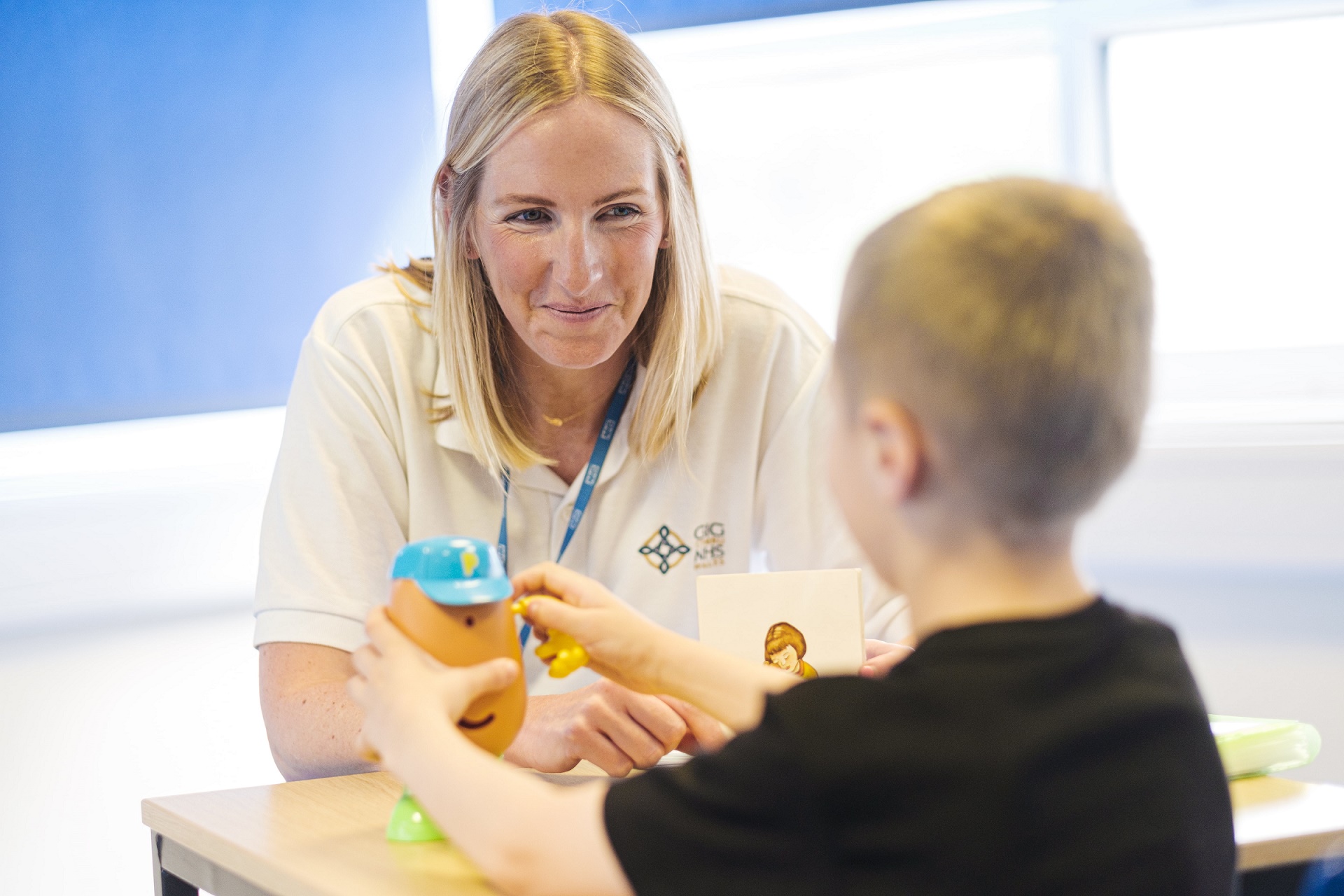Wrexham Glyndwr University Welcomes Next Generation of Speech Therapists to Trailblazing Degree Course

Date: 2021
The new BSc (Hons) Speech and Language Therapy (SALT) at Wrexham Glyndŵr University, is new to North Wales and offers an exciting opportunity to prepare local students for a career as a speech and language therapist who treats, supports and cares for those with eating, drinking, swallowing and communication problems.
The degree leads to a professional qualification meaning graduates entering the profession will be able to immediately uphold a paediatric and/or adult caseload and to assess and treat patients with dysphagia (issues with swallowing) as well as speech, language and communication needs, under supervision as a newly qualified therapist.
As the first SALT degree to be devised in the wake of the coronavirus pandemic, it integrates new technological and stimulatory advances to the profession into teaching and learning practices, as well as modern themes such as compassionate leadership, mental health and multi-disciplinary team working.
Programme Leader Lauren Salisbury said: “I am honoured to be the programme lead for the BSc Speech and Language Therapy degree at Glyndŵr University. It is fantastic to finally have this vocational course on offer in beautiful North Wales.
“I am passionate and committed to developing the best speech and language therapists, for the future of this essential profession in Wales. The course has been designed to blend the traditional components of study with contemporary themes, to ensure graduates are ready for the world of work, in this ever-changing healthcare landscape.”
It will enable the next generation of speech and language therapists to develop transferable and specialist skills for reflective practice and lifelong learning in their career, as dynamic leaders of frontline healthcare in the 21st Century.
The course has strong links with therapists in the local health boards, providing a professional education that is attuned to the needs of health and care provision in Wales. Theory is brought to life during hands on practical placements, with opportunities across Wales, including specialist centres.
“The embedded dysphagia competencies are significant, because it means that Glyndŵr graduates will have parity with international graduates,” Lauren said.
“Historically these have had to be gained following the initial qualification as a SALT, having them embedded in the course will mean our students are even more prepared for their new roles on graduation.”
The governing body of speech and language therapists, RCSLT, has been focused on encouraging a more diverse entry to the profession in recent years. This course has been designed to attract a more diverse workforce than ever before.
Lauren said the course will welcome applications from people of all ethnicities and backgrounds. Currently it has been noted that there is under-representation of Black, Asian and minority ethnic communities, people with a disability, males, people who speak languages other than English, people from economically under-represented communities and from the LGBTQ+ community within many health professions.
She added: “Consequently we are really keen to welcome applications from the diverse population so that the profession better represents the diversity in the community. There is a strong focus on bilingualism and opportunities to study through the medium of Welsh.”
Find out more by visiting the Bsc (Hons) Speech and Language Therapy course page.
The HEIW commission means that bursary funding may be available for eligible students who commit to working in Wales after completion of their studies.
This bursary would cover the cost of their studies, for more information visit here.
Other prospective students may wish to fund their studies through a student loan. For more information, click here.
So if you can see a future for yourself as a children’s nurse, why not take the next step and apply today?